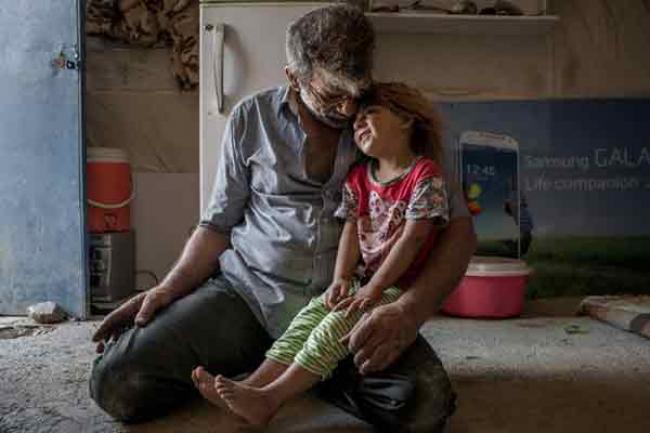Just Earth News 24 Aug 2016, 02:52 pm Print

UNHCR/Cingzir Yar
“Already, in recent months, some 213,000 people have fled their homes in different parts of the country,” Adrian Edwards, a spokesperson for the Office of the UN High Commissioner for Refugees (UNHCR) told journalists at the regular press briefing in Geneva on Tuesday.
“This includes 48,000 people from the Mosul area; 87,000 from the Falluja region; and 78,000 from Shirqat, Qayyara and surrounds,” he said, explaining that the humanitarian impact of a military offensive there is expected to be enormous – with predictions of up to 1.2 million affected people.
“UNHCR is doing what it can amid enormous challenges to build more camps to accommodate people and mitigate suffering, but additional land for camps and funding is still needed,” said Edwards.
Iraq is already one of the world’s biggest internal displacement situations. Since January 2014, some 3.38 million people have fled their homes – among them, families who have been displaced multiple times.
“UNHCR continues to advocate, in a volatile, fast-evolving and complex conflict, for freedom of movement of civilian populations,” the spokesperson elaborated. “This is especially critical when it comes to people fleeing combat zones. Everything possible should be done to ensure the safety and dignity of people affected,” he added.
The UN agency provides humanitarian support, including shelter, emergency relief kits and protection services, such as legal aid for displaced families. With the impending situation in Mosul, it is currently expanding its efforts to assist hundreds of thousands more.
As part of an inter-agency response, contingency plans have been drawn up to provide shelter assistance for up to 120,000 people fleeing Mosul and the surrounding areas. Across the region, a series of camps are in the process of being expanded or established while other shelter options are being prepared.
In July and August, two camps were completed in Debaga, in Erbil Governorate, to house displaced Iraqis who fled villages to the east of the Tigris River.
“Due to the number of daily new arrivals, UNHCR is looking to construct an additional site, and we are awaiting land to be made available by the local authorities,” Edwards continued, and added that Debaga has swollen nearly ten-fold in just a few months – from a camp housing 3,500 displaced people in March to several sites now housing more than 34,000.
He went on to update reporters that north of Mosul, work is almost complete at Zelekan site in Sheikhan district – with a capacity for 1,200 tents – while preparations at Amalla site in Telafar district, north-west of Mosul, are under way for a camp capacity of 3,000 tents.
Additionally, in Kirkuk, UNHCR is constructing a new camp in Daquq district, with a 1,000-tent capacity and expanding additional camp capacity at Nazrawa and Laylan, which are now completely full. Work is also under way in Salah al-Din for a 1,000-tent camp at Tal al-Seebat.
UNHCR is also assessing and identifying other sites across northern Iraq in close consultation with authorities.
“Altogether, UNHCR is looking to set up camps in up to six locations across northern Iraq although progress depends on both the availability of land and of funding,” the spokesperson explained. “UNHCR’s overall appeal for $584m for displaced people including Iraqi refugees in the region was only 38 per cent funded as of 2 August.” Finding available land for the new camps has become a critical issue, fraught with proble Land is identified and provided by the local authorities and assessed by UNHCR, other UN agencies and humanitarian partners for suitability. Problems ensue as many private landowners are unwilling to lease their plots while other properties may be unsuitable due topography, frontline proximity or landmine contamination risks. Locations may also be deemed inappropriate in areas where displaced Iraqis might inflame ethnic, sectarian, religious or tribal tensions. UNHCR leads the coordination and management response for protection, shelter, non-food items and camps. The agency currently has contingency stocks of tents and other relief items for 20,000 households country-wide.
- India rejects allegations, urges Pakistan to tackle its ‘home-grown ills’
- Massacre in Islamabad: ISIS takes responsibility for deadly Pakistan blast
- Friday turns fatal: 31 dead, 169 injured in shocking Pakistan mosque blast
- Explosion at packed mosque in Pakistan turns Friday prayers into scene of carnage, 15 dead
- Security forces handicapped: Pakistan Defence Minister’s shock admission on Baloch violence





-1763561110.jpg)
